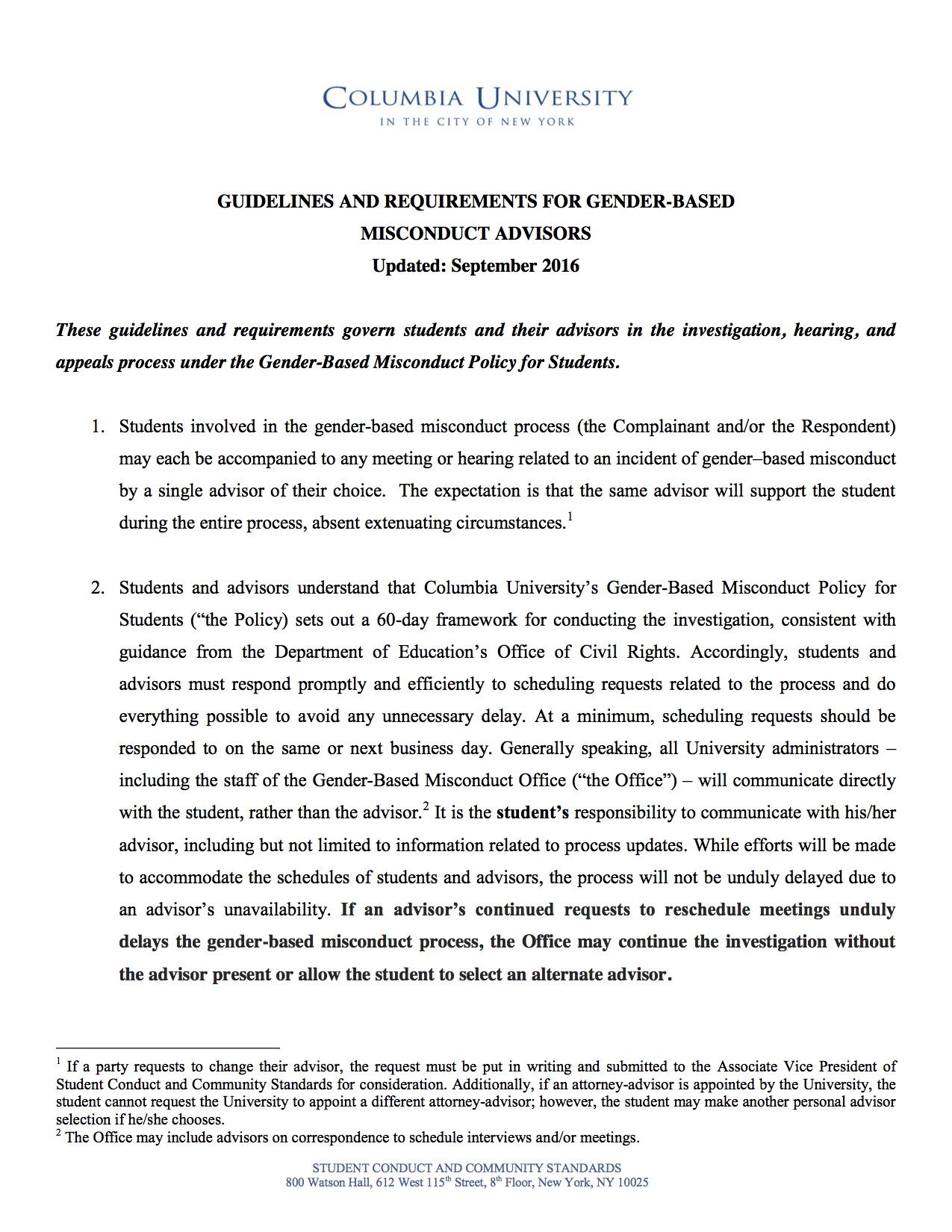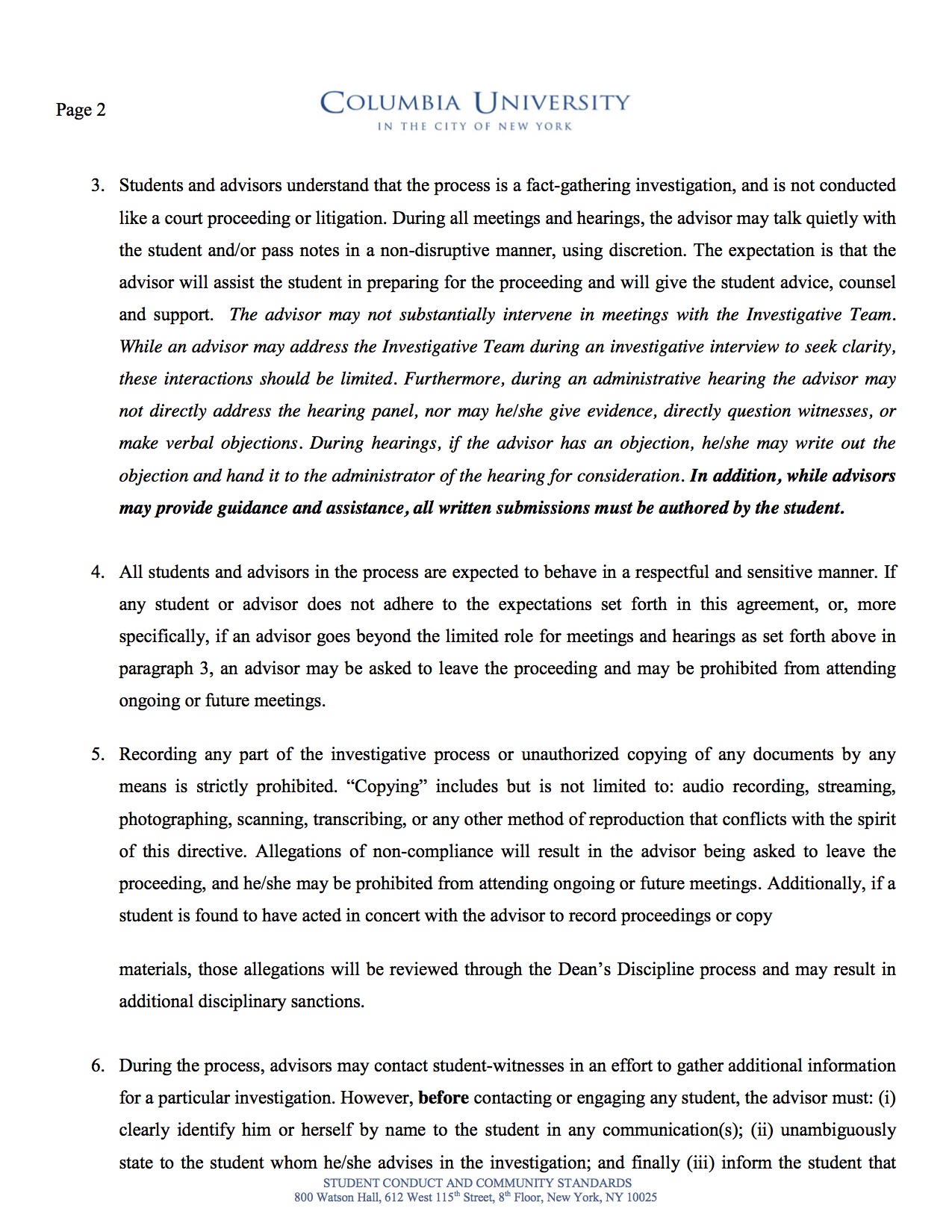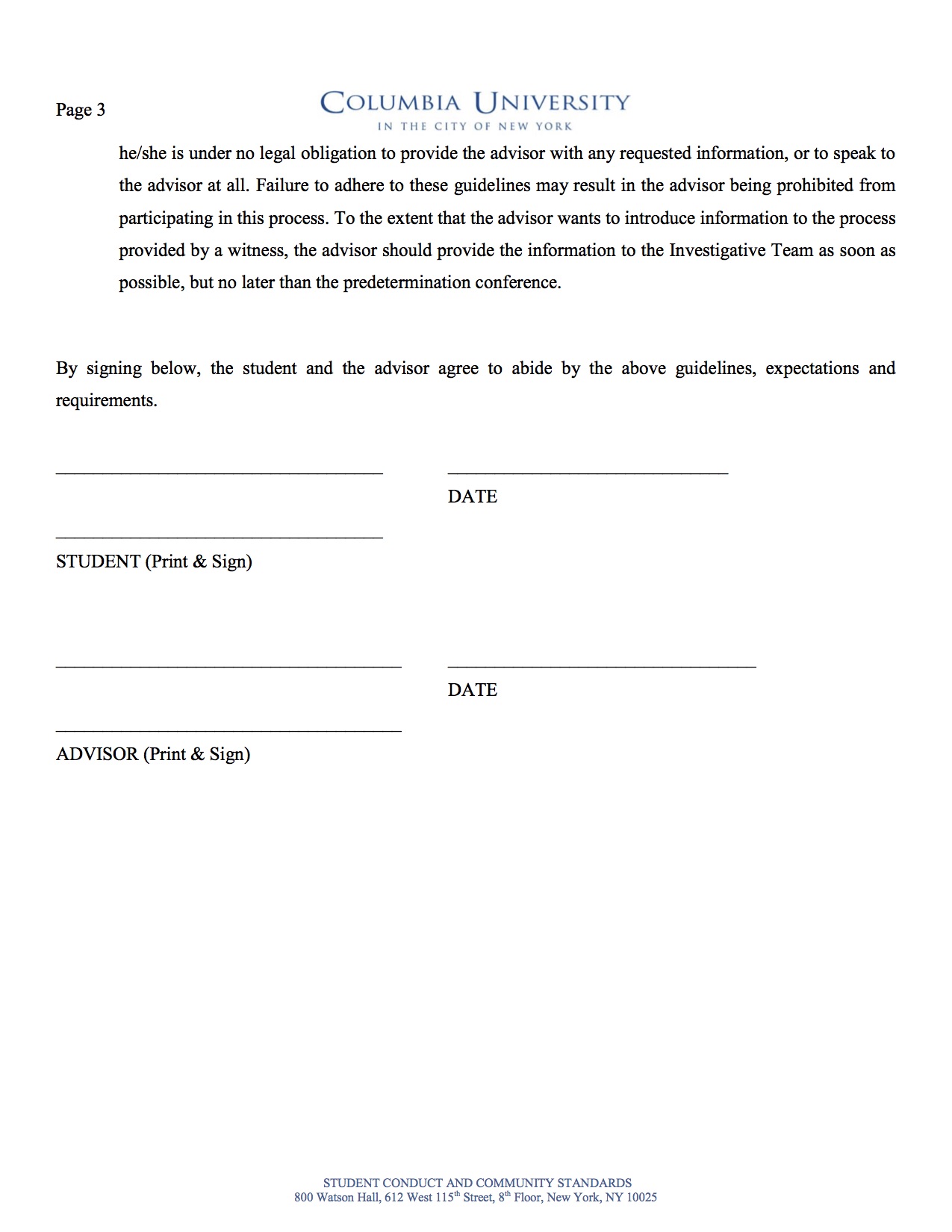[CW: sexual/dating violence mentions, mental health issues, racism, other discrimination mentions]
Anti-discrimination protections are crucial for our survival. No Red Tape CU includes members who are queer, genderqueer, Black and POC, Muslim and Jewish, low income, not-able-bodied, survivors of violence and discrimination, and international students. The Trump administration formally or informally rolling back Title IX enforcement is personal to us.
Title IX protects our members from experiencing homophobia.
Title IX prevents our members from being misgendered or denied access to facilities based on gender identity.
Title IX guarantees our Black, POC, Muslim, and Jewish members assault investigations and school experiences free from racial and Islamophobic violence.
Title IX provides our low-income members with free counseling, medical services, and academic support.
Title IX gives our members with disabilities the accommodations they require to be students at Columbia.
Title IX demands Columbia protect all of us from sexual and dating violence.
Title IX gives our international student members and all undocumented students the same rights as those who are U.S. citizens.
Title IX stops Columbia from retaliating against us for fighting for our rights, as Columbia has tried to do countless times before with written threats of expulsion.
The impact of these protections applies to countless other students who have benefited from Title IX. Without the protections Title IX has afforded survivors of violence and students with one or more marginalized identities, many of us would no longer be in school.
In March, we held a #CantTrumpOurTitleIX day of action in which we demanded the Trump administration enforce Title IX protections. Unsurprisingly, they are refusing to do so.
Now we call upon Columbia to commit to enacting and upholding our Title IX demands. The demands, which we released in March with 100 signatories, require little effort on Columbia’s part — slightly altering policy language and procedures, committing to expanding upon existing accommodations, etc. However, Columbia has yet to respond.
We asked EVP Suzanne Goldberg to collaborate with us on our Title IX demands before we released them. Thanks to an internet browser extension, we could see that she and her assistant, Don Harrison, opened the email five times. Neither bothered to reply. While we have been working to make Columbia safer, EVP Goldberg has denied Black and queer survivors meetings with her, defended the Columbia administration’s homophobic policies, and refused to improve the ineffective mental health resources that have been in place through multiple of our classmates completing suicide this year.
EVP Goldberg is not alone in being deliberately indifferent to gender-based violence on campus; Student Conduct and Community Standards, the office investigating campus violence under the direction of AVP Jeri Henry, locked their door and turned off their lights to prevent us from delivering a petition to them in the middle of a workday. AVP Henry told a survivor that she should leave Columbia because she asked for accommodations, adding to a documented history of AVP Henry bullying survivors of violence. And Title IX Coordinator Marjy Fisher, despite adamantly claiming she fights equally for all students regardless of identity, agreed to take a white survivor in our group to the Manhattan ADA to report her assaults but refused to take a Black survivor who asked to report as well, and has shown general anti-Black racial bias in her daily treatment of survivors in our group.
Now, more than ever, Columbia employees — particularly EVP Goldberg, AVP Henry, and Marjy Fisher — need to put our needs ahead of their egos and commit to enforcing the Title IX demands we have put forward.
We have fought for survivors every day since our group’s inception in 2014, exposing ourselves to constant harassment, discrimination, and in some cases, actual violence. Where have you been, Columbia? What will it take for you to do your job?





